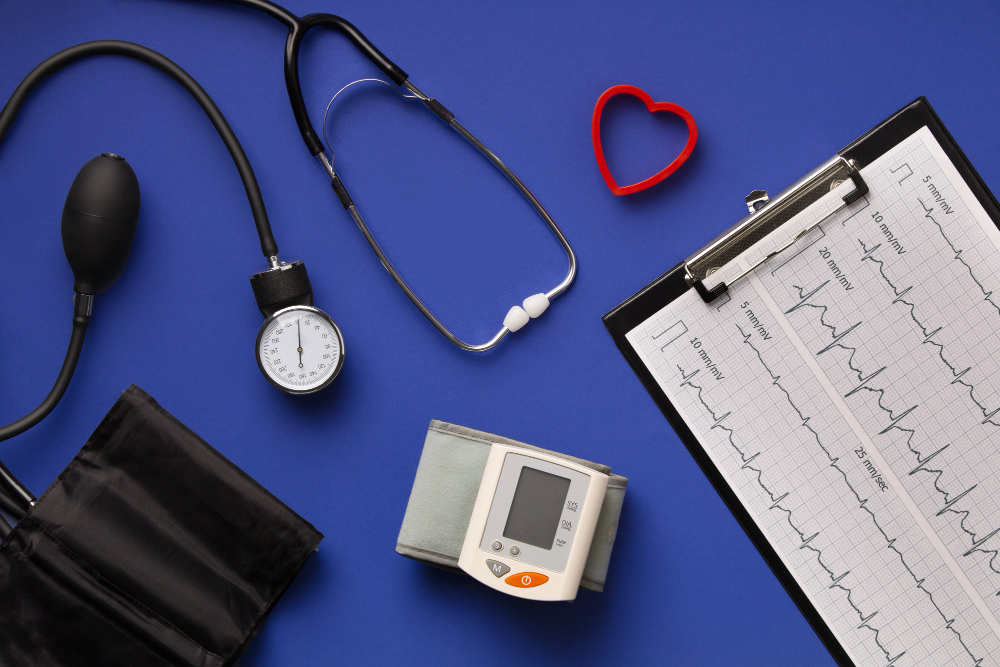Health Monitoring Tools Every Home Should Have

In a world where health is not only wealth but also a significant concern, it becomes increasingly vital to equip ourselves with the right tools to keep a close tab on our well-being. With advancements in technology, health monitoring at home is no longer just a luxury for the medically inclined but a necessity. From managing chronic conditions to simply living a proactive lifestyle, the right tools can be life-changers. This article is about the must-have health monitoring tools that can transform your home into a personal health hub.
Whether you're proactively managing a known health issue or seeking to establish a baseline for your wellness, the following tools are indispensable.
1. Blood Pressure Monitor
Hypertension, or high blood pressure, is often called the "silent killer" because you can have it for years without knowing. A digital blood pressure monitor is a crucial tool for individuals of all ages. Regular monitoring at home can offer a trend of your blood pressure over time, helping you determine if you need to make lifestyle changes or consult a healthcare provider. It's simple to use and can provide accurate measurements at your convenience.
2. Thermometer
In the wake of pandemics and to manage common illnesses like the flu, a thermometer is a must to monitor the fluctuation of body temperature. From traditional mercury-based to modern infrared varieties, thermometers help keep track of fevers and can provide diagnostic clues when communicating with a healthcare provider.
3. Scale and Body Composition Analyzer
Weight is just one aspect of health; what that weight is composed of is equally important. Body composition analyzers use bioelectrical impedance to measure body fat percentage along with weight, muscle mass, water weight, and BMI. These measurements can give a more comprehensive overview of your body's health and composition, which is crucial for setting and tracking personal fitness goals.
4. Heart Rate Monitor
Understanding your heart rate can be a key indicator of cardiovascular health. Fortunately, you can measure it easily at home using wearable technology like fitness bands or smartwatches. If you're monitoring it for medical reasons, consider a dedicated heart rate monitor for greater accuracy.
5. Pulse Oximeter
Especially pertinent during respiratory illnesses, a pulse oximeter estimates the percentage of red blood cells that are carrying oxygen in the body. Low oxygen levels can be an early indication of trouble and a red flag for conditions like COVID-19 and asthma. They are non-invasive, clip onto a fingertip, and provide instant results.
6. Glucometer
For individuals with diabetes or those at risk, a glucometer is a lifesaver. It measures blood sugar levels, which is crucial in managing diabetes and understanding how different activities and foods affect your blood glucose. Continuous Glucose Monitors (CGMs) are also a great option for those who require constant monitoring.
7. EKG Monitor
While this might be more specialized, a personal EKG monitor can be beneficial for individuals with a history of heart problems or those who wish to monitor their heart's electrical activity. It's a new but rapidly growing field in at-home monitoring, offering peace of mind for many.
8. First Aid Kit
Not entirely a monitor, but a well-stocked first aid kit is equally important to respond to emergencies quickly. It should include bandages, antiseptic solutions, scissors, CPR masks, emergency blankets, and a cell phone with emergency numbers saved. Familiarize yourself and your family with its contents and the basic first-aid strategies.
9. Smart Medicine Cabinet
An organized medicine cabinet is a hidden health monitor in itself. Keep track of your medications, their expiry dates, and even set up alerts for refills and doses with smart organizational tools. It prevents medication errors, ensures you're taking your medications as prescribed, and could potentially save your life.
10. Health Journal
In the digital age, it may seem archaic, but maintaining a health journal can be profoundly insightful. Record your daily activities, diet, moods, symptoms, and any measurements or observations you make with the tools mentioned above. Over time, patterns will emerge that can guide your wellness decisions.
By equipping your home with these health monitoring tools, you're taking an active role in your healthcare management. Regular monitoring can spot problems early, help you manage existing conditions better, or simply provide peace of mind that you're staying on top of your health.
It's important to remember that home health monitoring is a complement to professional healthcare, not a replacement for it. Always consult a healthcare provider when you have concerns about your health, interpretation of the readings, or need medical advice.
Vital Eagles Healthcare is your neighborhood destination for primary medical care and urgent care in Plant City, FL. Contact them today to book an appointment or inquire about services that could enhance your home health monitoring experience. They offer not just a location for when urgent care is needed but a partner in your wellness and health management.
